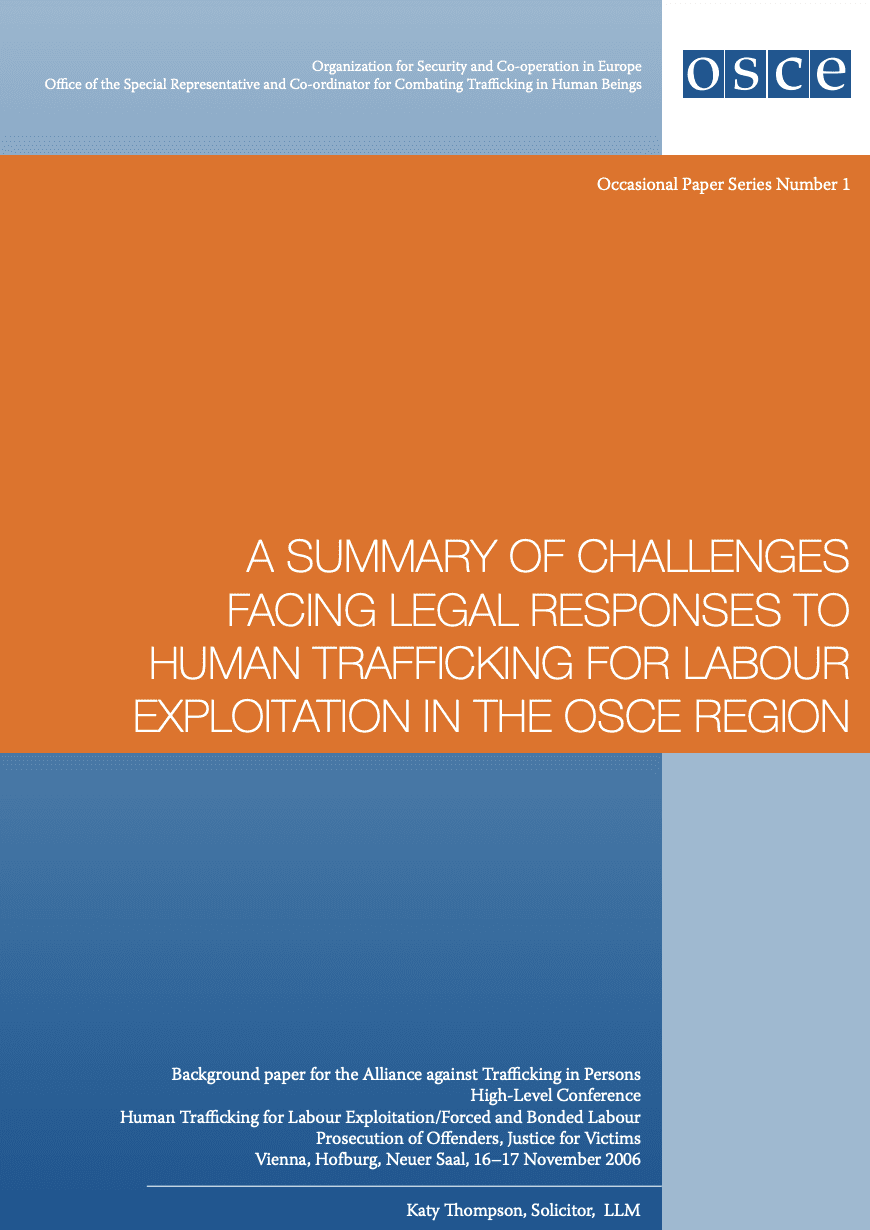
A Summary of Challenges Facing Legal Responses to Human Trafficking for Labour Exploitation in the OSCE Region
INTRODUCTION
The exploitation of human beings for labour is a centuries-old problem long acknowledged to cause misery, hardship and degradation. The global community has committed itself in numerous international legal documents to guarantee freedom of movement and respect for human dignity and to take steps to prohibit and criminalise forced labour, servitude and slavery as well as trafficking for these purposes. Despite these steps the phenomenon persists. Trafficking in persons for labour exploitation continues to be a serious global problem, including in the OSCE region. It is a multifaceted issue related to numerous economic and political challenges, including: effective criminal justice and the fight against organised crime; global migration trends and immigration policy; social and economic inequality, discrimination and xenophobia.
This paper provides a short explanation of the issue followed by an examination of a small sample of the legal challenges faced by OSCE participating States in implementing their political commitments and legal obligations to end trafficking for labour exploitation. It highlights some of the technical or legal steps which need to be taken to ensure effective prosecution of perpetrators but also makes clear that, without effective and comprehensive protection of potential and actual victims, prosecution efforts will have limited impact. These protection measures are not limited to guaranteeing the physical and psychological safety of identified victims but extend also to protection of the community in the wider sense i.e. to ensuring that the labour market and work place are adequately and effectively regulated and that safe and legal migration opportunities are available.
Read more here.
